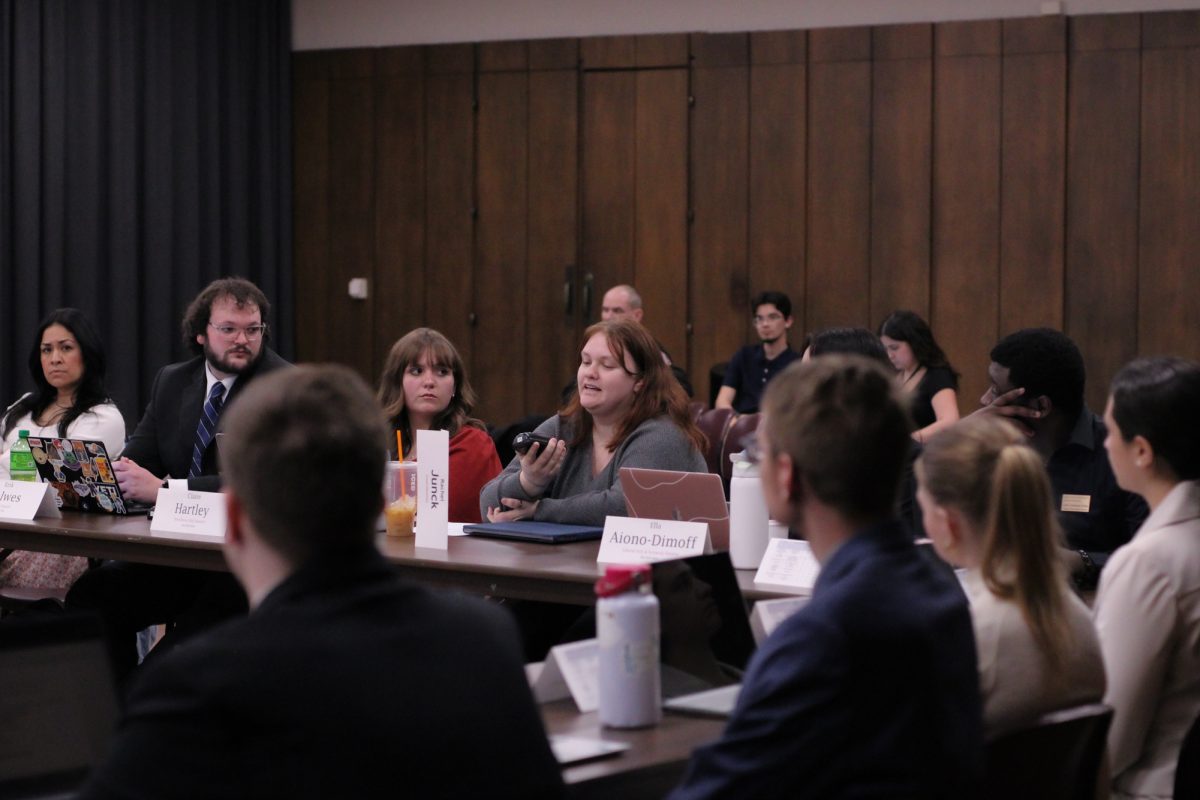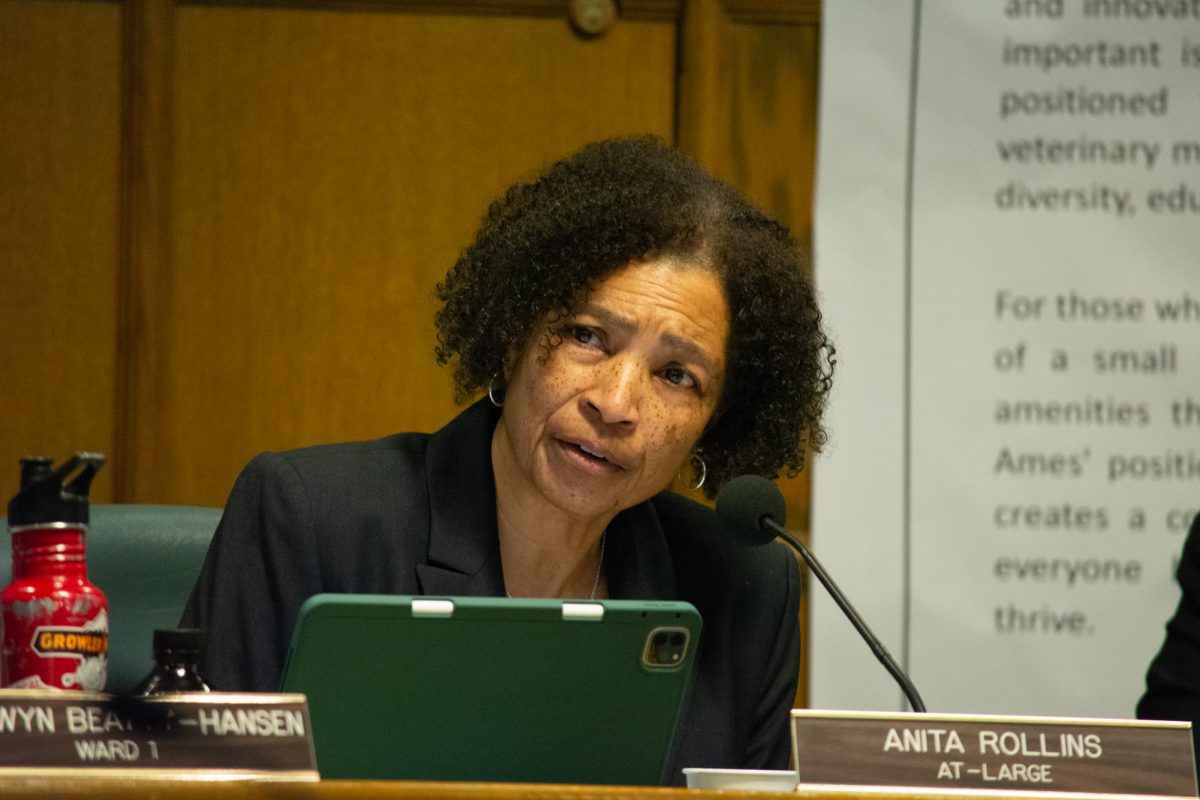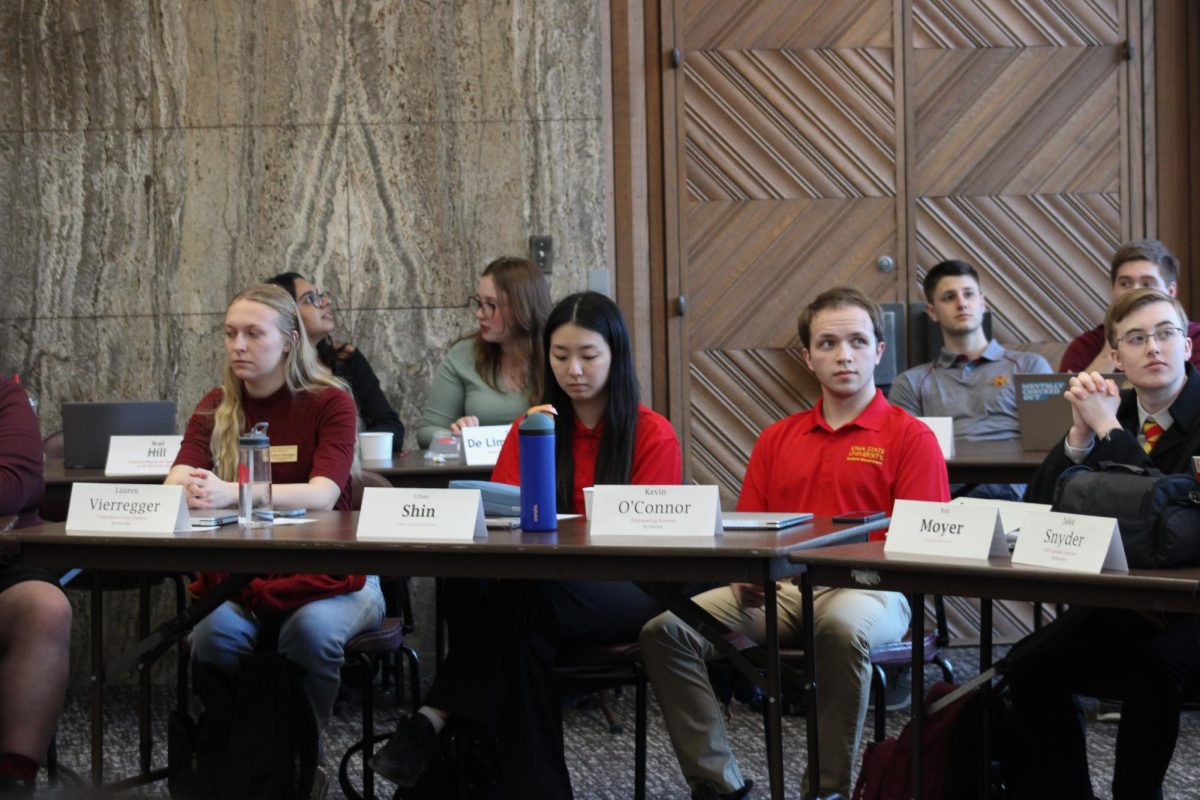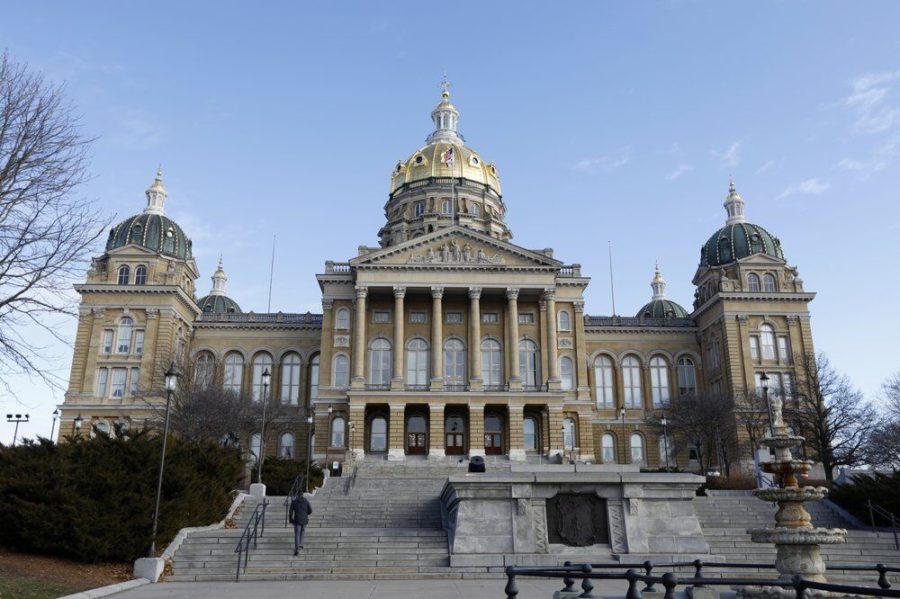The Iowa Supreme Court heard arguments regarding proposed legislation to restrict abortions at six weeks April 11, after the legislation was blocked by a district judge citing unconstitutionality.
The six-week abortion ban was signed into law in July, but the bill was quickly blocked to determine its constitutionality. Now, the seven Iowa Supreme Court justices will hear arguments and decide on the legality of this legislation.
Authors of the proposed bill set the limitation due to the six-week marker offering the earliest detection of a fetal heartbeat. Currently, Iowa permits abortions up to 20 weeks of pregnancy.
Mack Shelley, a political science professor, said the issue was expected by the court, so an opinion may be drafted quickly.
“The actual in-person debate is very recent, but the issue has been percolating for quite a while, and it wouldn’t surprise me if there weren’t draft opinions maybe circulating already among the judges and the usual kind of jockeying that goes on behind the scenes,” Shelley said. “The wildcard is that the vote was previously 3-3, and one judge recused herself, so that becomes a wildcard now.”
Brandon Simmons, a sophomore in industrial design and the treasurer for College Republicans, said he hopes that this legislation will protect unborn children.
“If this took place in every other state, you know state-by-state that will get the ball rolling,” Simmons said. “Since the overturning of Roe v. Wade, I think lots of babies will be saved.”
Ethan Kraulos, a senior majoring in kinesiology and the vice president of College Democrats at Iowa State, mentioned that allowing abortions to the 20th week of pregnancy would allow more people to utilize this procedure.
“The majority of pregnancies, you’ll know if you’re pregnant by 20 weeks, so it gives women more time to make a decision,” Kraulos said. “This is a tough decision that women weigh heavily.”
In other states, like Texas, a six-week abortion ban has led to residents leaving the state to receive abortions.
“Interstate travel to find a place to get an abortion, which sounds like Illinois fundamentally or Minnesota, that certainly would be a thing,” Shelley said.
Simmons said he believes limiting abortion in Iowa will be beneficial, but there should not be limitations on leaving the state to receive the procedures.
“I think that people have a right if they choose to go out of state to get that procedure done, then they have the freedom to do that,” Simmons said. “Texas does their own thing. I think Iowa should do their own thing where people have their own freedom to go out of the state if they want.”
Additionally, many rural Iowans have difficulty receiving medical services due to their lack of resources. Amy Smith, a political science professor, said Iowans may already be seeking reproductive services in other states.
“I know that that kind of stuff is already happening because of the decline in Planned Parenthood sites in rural areas in Iowa, so we are already seeing people accessing abortion in other states,” Smith said.
Legislation that limits abortion to six weeks often comes with exceptions, such as pregnancies caused by incest or a life-threatening cause to the pregnant person.
“It could be that the ruling goes into effect but maybe with additional exceptions,” Shelley said. “At that point, the legislature and the governor would kick back in and take further countermeasures I would imagine.”
Kraulos said he thinks these forms of exceptions could force women into uncomfortable situations.
“More women would be forced to come out about such personal information that they might not be comfortable sharing with their family, friends or loved ones, which can be a very traumatic experience to go through,” Kraulos said. “That can lead to so many psychological side effects.”
Both Smith and Shelley mentioned that this issue could impact future voting, especially with the impending November national election.
“It is not an issue that is going away in the near future, and if it ever plays out at the national level, it is certainly going to have an impact, at least rebounding in Iowa,” Shelley said. “The Iowa Supreme Court decision, I think, is guaranteed to come down well before the November national elections.”
Smith said campaigning and voting is the best way to voice opinions on abortion in Iowa.
“The best way to reverse this going forward is getting a Democratic majority in both chambers of the Iowa legislature, as well as the governorship because you would need a Democratic governor,” Smith said. “For students who oppose abortion, likewise, it is also a long game of supporting Republican majorities and having a Republican governor because this is what’s going to prevent a change. So going forward, the best way is to get involved in elections and campaigns to try to support Republican or Democratic majorities.”



















